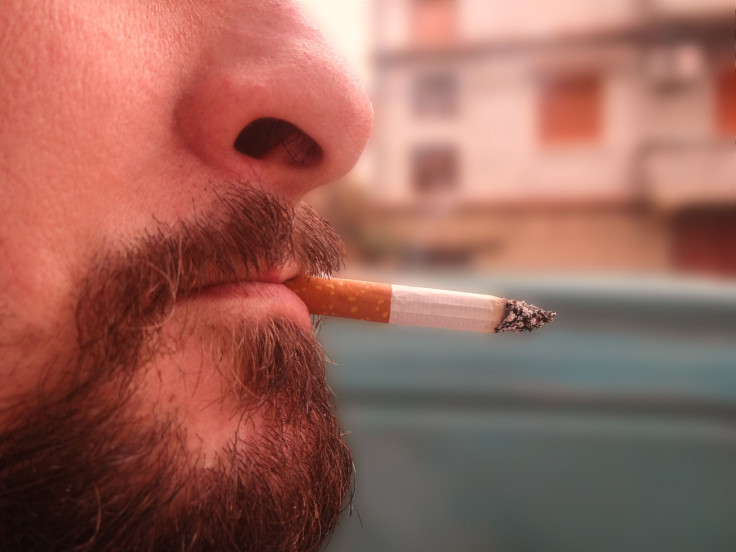Cigarette Smoke Weakens The Immune System By Helping Mouth Bacteria Build Resistance

That hacking cough and nauseous feeling after smoking one too many cigarettes is probably your body’s way of telling you it’s not enjoying those chemicals too much — chemicals that not only can cause cancer, but also weaken your immune system and possibly encourage mouth bacteria to grow and contribute to disease. That’s the subject of a new study out of the University of Louisville School of Dentistry, which found that cigarette smoke helps bacteria colonize and build resilience.
The specific types of bacteria that were found to grow more from smoke were Staphylococcus aureus, (which causes skin infections) Streptococcus mutans (which contributes to oral diseases), Klebsiella pneumonia, and Pseudomonas aeruginosa. These bacteria may build up to cause other diseases like vaginosis and pneumonia.
“While there has been considerable focus on the mechanisms by which smoking dysregulates the immune system, little information is available as to how smoking influences the actual bacteria that cause disease,” the researchers write. “It is clear, however, that many bacteria exhibit a high degree of tolerance to cigarette smoke and smoke components, while it has been known for some considerable time that tobacco components can even promote the growth of some pathogenic bacteria.”
Building A Biofilm
Past research identified a link between smoking and increased bacterial resistance. In 2015, scientists discovered that cigarettes actually contributed to superbug development, and earlier this year, researchers at NYU proved that smoking changes the oral microbiome. But the latest research is one of the first to delve into smoking’s effect on biofilms — cities or communities of bacteria that are much harder to kill than individual microbes. Biofilms can grow on many different surfaces, including parts of the body like teeth (known as plaque) or the heart, and contribute to diseases like gingivitis.
Biofilms are complex and interconnected, often with bacteria of different species working together. They’re especially difficult to overcome, because they “provide a physical barrier against the host immune response, can be impermeable to antibiotics and act as a reservoir for persistent infection,” the authors write in an accompanying blog post.
In their study, the researchers examined how smoking influenced biofilm development. They found that oral microbes responded to the chemicals in smoke by changing specific gene and protein expressions, which in turn resulted in boosted bacterial growth and colonization. Altered genes also ended up allowing the bacteria to learn how to avoid the immune system, which would make them much harder to destroy.
The researchers plan on doing more research into how smoking directly causes disease, but for now it’s safe to say your oral microbiome will thank you if you quit. “We are continuing research to understand the interactions of the elaborate communities within biofilms and how they relate to disease,” said David Scott, lead author of the study, in a statement. “Many studies have investigated biofilms using single species, but more relevant multispecies models are emerging. Novel treatments for biofilm-induced diseases also are being investigated, but we have a long way to go.”
Source: Hutcherson J, Scott D, Bagaitkar J. Scratching the surface -- tobacco-induced bacterial biofilms. Tobacco Induced Diseases , 2015.



























